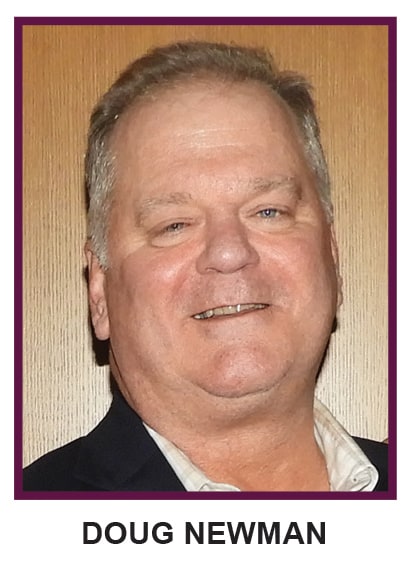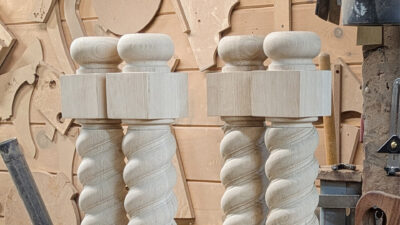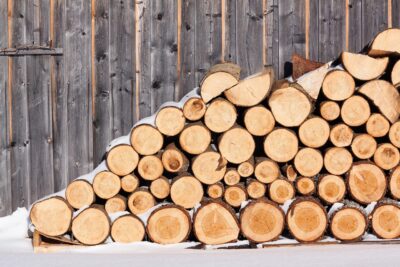By Matthew Fite
For importers of wood, “It’s been a different year,” according to one importer in New York State. Another importer said the market for his company has had its ups and downs. But all respondents surveyed reported either OK or good markets for their products. The importer from New York added, “What the rest of the year will bring is uncertain at this point, but if we can keep our current pace, it will not be the worst year.” Following are comments from importers from wide-ranging locales.

Jordan Dery
Tropical Forest Products
Mississauga, Ontario
Jordan Dery of Tropical Forest Products in Mississauga, Ontario, stated, “The imports are moving quite a bit for us, and we just can’t seem to get enough in our inventory before it all sells out. For Ipe, it’s going fantastic. All the Sapele items have been extremely hot for us. African Mahogany has really picked up as well.” The main species this company sells are Mahogany, Sapele and Ipe.
“We don’t really sell to China,” he remarked, “so we haven’t really been affected by the Chinese tariffs. We’ve pretty much kept our business to North America only. In March, COVID was really bad for us, but April through July have been fantastic for us. A lot of people have been doing home projects rather than taking vacations. So, for us, it’s been a great second quarter, and we’re planning on having a great third one as well.” Transportation has not been a problem for Tropical Forest Products. A downside that he sees is the U.S. dollar dropping and the euro getting stronger.

Jordan McIlvain
Alan McIlvain Company
Marcus Hook, PA
Jordan McIlvain, of Alan McIlvain Company of Marcus Hook, Pennsylvania, observed that, in the spring, “We pushed deliveries back due to things slowing down and shutdowns from Coronavirus. But since then,” he said, “everything’s come in. When we said, ‘Start shipping again,’ everything started shipping again. So, it seems mills are keeping up with demand in most items.
“We also had a good stock in the beginning of the year,” he stated, “thinking this would be a better year, before Coronavirus. Working closely with our suppliers we have been able to control the flow of material coming in as needed or sooner. So, overall, I haven’t seen any real issues with imports.”
However, “Getting documents is slow on some items,” he noted. “In March, April and May, documents coming through from ports abroad was tough, just because they were slow and affected by the Coronavirus. But otherwise,” he observed, “there haven’t been many issues that I’ve seen.”
Sapele has been in greatest demand, he said, and Spanish Cedar has remained consistent, “holding its own at a low level. African Mahogany seems like it’s tapered off a little, though.”
“The Chinese tariffs haven’t affected us directly,” he said, because, “we don’t import from or export to China at all. But, as I’m sure everybody knows, COVID has affected everything as far as our domestic sales, which includes what we import. And then, getting answers back from mills abroad has taken longer, just because they’re scattered all over, with their own shutdowns. It takes longer for import documents to get processed, even with the delayed shipments. I would think if demand really picked up, some shippers would not be able to keep up, even though there is some material available for prompt shipment now. Business is picking up but is still slower than it would have been without COVID.”
McIlvain said transportation has not been a problem for his company. “We have not had any big push where we needed more material than we already had on contract. I know some overseas suppliers have excess material for prompt shipment if needed which is not always the case.”
The import side of their business is “running smoothly right now,” McIlvain commented, but, “It seems that more businesses and brokers have gotten into the imports recently as domestic species have gotten slower. Margins are squeezed at a time when demand has decreased. The increase in availability has affected pricing and will continue if more businesses decide to enter the market,” he said. “When everybody does the same thing, it’s going to have the reverse effect of what they were hoping.”

Stewart Sexton
AHC Import Lumber
Huntersville, NC
Stewart Sexton of AHC Import Lumber in Huntersville, North Carolina, said the market for his company has “had its ups and downs. It seems to be on the way back up again now. Starting at the end of first quarter, it was down a bit, but now we seem to see some recovery coming along.” His company’s biggest seller, he noted, is Sapele followed by Red Grandis. “With the strength in the new home market, we are seeing a resurgence in demand on the more common exotic species, also,” he stated.
“COVID 19 has probably slowed down some of our customers’ consumption, because they’re shorthanded on their work staff in lots of cases. I think that’s coming back now in the third and fourth quarter.” He said economic matters regarding China do not affect his company’s import business, but have affected their export business negatively. Also, ocean transport has not been a problem for the company. However, he stated, “We’re encountering some additional costs due to the exchange rate. Exchanging the euro to the U.S. dollar has changed quite a bit over the past six months.”

Jesper Bach
Baillie Lumber Co.
Hamburg, NY
Jesper Bach of Baillie Lumber Co. in Hamburg, New York, expressed the thought that, “It’s been a different year to say the least. We were hoping to put tariffs behind us, and, since it’s an election year, maybe see some stability in the market. Those years tend to be a little flat, which we would have been happy with. COVID put a damper on March and April for sure, but business has gotten somewhat steady after that for us on the imported woods. What the rest of the year will bring is uncertain at this point, but if we can keep our current pace, it will not be the worst year.
“Sapele has been the main species again in 2020, followed by Cedar, African Mahogany, Red Grandis, Genuine Mahogany and then the more exotic species after that,” he stated. “Sapele definitely still seems to be the wood of choice for a large variety of projects, enjoying consistent usage throughout the year, where a lot of the other species are a little more up and down.”
While Chinese tariffs have impacted some companies, “There has been no major impact from the tariffs on our side, other than potentially less purchasing power in the market in general. As an essential business, we were able to keep our operations open throughout the COVID-19 situation, although at a reduced pace as we implemented security measures to keep our employees and their families safe. We did see certain markets dip with regional and state closures, but most rebounded quite good when they opened back up again. Overall we managed to stay somewhat level on the sales and shipping side.”
When asked if transportation has been an issue for Baillie Lumber, Bach replied, “Africa has been an issue for a while. Contracts are being produced more or less on time by suppliers, but containers are still, at times, sitting for quite some time in Douala before they ship out. From South and Central America, things have been smooth, although not as much demand for product from those areas.”
As for other matters affecting his company, Bach said, “It’s an unknown negative at this time, but absolutely we are concerned about COVID-19 in Africa. There appears to be a growing number of cases there, but reporting is probably not very accurate due to inadequate testing and treating facilities. That could bring some supply issues down the road depending on how each country treats the virus and reacts to it to keep their populations safe.
“We are a large stockholder of imported woods, carrying 1.5 to 2.0 million board feet of KD lumber at all times,” he continued. “On the positive side, that is helping us secure more business as our customers in the U.S. and Canada are relying even more on product to be available for prompt shipment to manage their inventories.
“Lastly would be the U.S. vs euro development,” he noted. “The U.S. dollar has lost about 10 percent value against the euro in a fairly short amount of time. That has brought some price increases on product out of Africa, and we may see a little more of that this fall and leading into 2021, depending on further development there.”

Doug Newman
Newman Lumber Company
Gulfport, MS
Doug Newman of Newman Lumber Company in Gulfport, Mississippi, observed, “The overall wood market has been steady. However, there is quite a bit of nervousness about inventory positions.” For his company, he said, “The species in greatest demand is mahogany.”
Tariffs have not impacted Newman Lumber Company, he stated. “We have very little business with China.
“Transportation is always a challenge,” he remarked. “With COVID-19, it has become even more uncertain. But, import schedules are always a crap shoot.
“It is a very interesting time in which we live. I am optimistic about the coming 12 months, if only because I’m too old and stupid to do anything else.”









